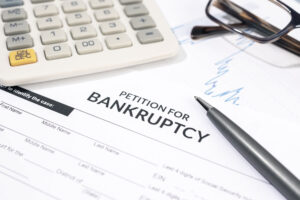 Filing for bankruptcy is a challenging process that can impact various aspects of your financial life, including homeownership. Whether you’re planning to buy a new home or sell your current property, understanding how bankruptcy affects real estate transactions is essential. In this post, we’ll explore how bankruptcy can influence both buying and selling a home, and provide practical advice on navigating these situations.
Filing for bankruptcy is a challenging process that can impact various aspects of your financial life, including homeownership. Whether you’re planning to buy a new home or sell your current property, understanding how bankruptcy affects real estate transactions is essential. In this post, we’ll explore how bankruptcy can influence both buying and selling a home, and provide practical advice on navigating these situations.
Buying a Home After Bankruptcy
While bankruptcy can severely damage your credit score, it doesn’t mean homeownership is permanently off the table. However, there are key factors to consider before entering the housing market post-bankruptcy:
- Waiting Periods After Bankruptcy: There are mandatory waiting periods imposed before you can qualify for a mortgage after bankruptcy. These vary depending on the type of bankruptcy filed and the type of mortgage you’re seeking:
Chapter 7 Bankruptcy: Typically, you will need to wait 2-4 years to qualify for a conventional loan, though government-backed loans like FHA and VA may allow shorter waiting periods.
Chapter 13 Bankruptcy: You may be eligible for certain loans after just one year of making payments, but for most conventional loans, the waiting period is 2-4 years. - Impact on Credit Score: Your credit score will likely take a hit after bankruptcy, making it harder to qualify for a mortgage with favorable terms. Many lenders look for a minimum score of 580-620, and post-bankruptcy, you may fall below that threshold. Rebuilding credit through timely bill payments and reducing outstanding debt will be crucial.
- Higher Interest Rates: Even after you’re eligible for a mortgage, expect higher interest rates than those offered to borrowers with good credit. Shopping around for lenders who specialize in working with post-bankruptcy clients can help you find better terms.
Selling a Home During or After Bankruptcy
If you’re in the process of bankruptcy and need to sell your home, there are additional hurdles to navigate, depending on the type of bankruptcy you file.
- Chapter 7 Bankruptcy and Home Sales: In Chapter 7 bankruptcy, your assets, including your home, may be liquidated to pay off creditors. However, if you qualify for a homestead exemption, you may be able to protect a portion or all of the equity in your home. The ability to sell your home will depend on how much equity you have and how the bankruptcy trustee decides to handle your assets.
- Chapter 13 Bankruptcy and Home Sales: Selling a home during a Chapter 13 bankruptcy is a more controlled process. Since Chapter 13 involves a repayment plan rather than liquidation, you’ll need court approval before selling your property. The court will review the sale to ensure that the proceeds are used appropriately to satisfy the repayment plan. This adds complexity to the sale but allows you more control over the process.
- The Role of a Trustee: In both types of bankruptcy, the bankruptcy trustee plays a crucial role in overseeing the sale of your home. You must obtain permission from the court before selling, and the trustee will ensure that any sale proceeds go toward repaying your debts.
Protecting Your Equity During Bankruptcy
For many homeowners, protecting their home equity is a top priority during bankruptcy. Each state offers different homestead exemptions, which allow you to shield a certain amount of equity in your home from creditors. Be sure to research the specific laws in your state or consult a bankruptcy attorney to maximize your protection.
How to Move Forward
While bankruptcy undoubtedly creates roadblocks, it doesn’t mean your dreams of buying or selling a home are over. Here are a few tips to help you move forward:
- Rebuild Your Credit: Pay your bills on time, keep your debt low, and consider using a secured credit card to boost your credit score over time.
- Work with a Bankruptcy Attorney: Navigating real estate transactions during or after bankruptcy can be complex, so it’s crucial to work with a knowledgeable attorney to avoid costly mistakes.
- Seek Pre-Approval Early: If you’re looking to buy after bankruptcy, start the mortgage pre-approval process early. This will give you a clear picture of what you can afford and what mortgage terms you’re likely to qualify for.
- Consult a Real Estate Professional: A real estate agent who understands bankruptcy’s impact on home sales can help you market your home effectively and guide you through the process, especially when court approval is required.
Final Thoughts
Bankruptcy may complicate your ability to buy or sell a home, but it doesn’t make it impossible. By understanding the legal and financial ramifications, you can take proactive steps to navigate the process and achieve your real estate goals. Whether you’re recovering from a bankruptcy and looking to purchase, or dealing with the complexities of selling a home during bankruptcy, patience and informed decision-making will serve you well.
Compliments of Virtual Results






 Catch Our Feed
Catch Our Feed Subscribe via Email
Subscribe via Email Follow Our Tweets
Follow Our Tweets Friend Us On Facebook
Friend Us On Facebook Watch Us On Youtube
Watch Us On Youtube